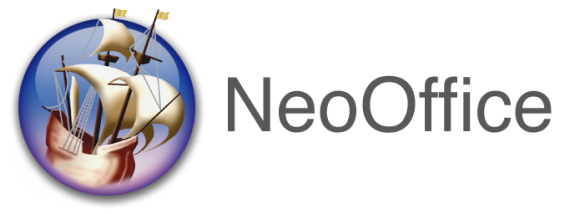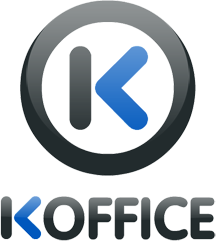5 free open source alternatives to Microsoft Office
While Microsoft Office is the industry standard in terms of , integrated applications for word processing, spreadsheets, presentations, database management, email and desktop publishing. However, it's important for small business owners to know that these types of office applications are also available in free and open source office productivity applications.
Open source office software has come a long way in recent years, so choosing free software over expensive proprietary software doesn't mean you'll lose features and support. Today's open source office productivity software is feature-rich and provides ample access to online documentation and large communities of users and developers.
You'll also find that open source products support the common document file types-including Microsoft file formats. Best of all, when you choose open source office software, you can forget about the hefty purchase price and per-user licensing fees that can eat up a small office's budget in no time.
Most free or open source alternatives to Microsoft Office have the basics applications for office productivity: word processing, spreadsheets and presentations. Several of the alternatives provide more, including drawing applications, database tools and storage options.
If you're looking to retire Microsoft Office, here are the details on five full-featured alternatives worth a try.
Apache OpenOffice: The free, open productivity suite

Apache OpenOffice is one of the better-known open source office software suites available. It provides tools for word processing, spreadsheets, presentations, graphics and databases. Apache OpenOffice lets you save documents in the OpenDocument format, read Microsoft Word documents and save your work in Microsoft Word format.
The full Apache OpenOffice suite includes six tools for managing office tasks:
Writer, the word processor, can handle anything from writing a quick letter to producing a book. Features include design wizards, autocorrect, formatting, styles, HTML and MediaWiki export, tables and desktop publishing tasks.
Calc, the spreadsheet application, will calculate, analyze and present data in numerical reports or graphics. Features include options to pull in raw data from databases, natural language formulas, a quick sum button, wizards, styles and a Scenario Manager for "what if" analysis.
When creating multimedia presentations, Impress supports multiple monitors and a complete range of views. including draw, outline, slides and notes. Drawing and diagramming tools, slideshow animation and effects are also available.
Draw is an image application that can produce everything from simple diagrams to 3D illustrations.
The database tool,Base, can create and modify tables, forms, queries and reports within Apache OpenOffice.
Finally, Math can create mathematical equations through either a graphic user interface or by directly typing formulas into the equation editor.
Apache OpenOffice is released under the Apache License, Version 2.0 and can be downloaded and used entirely free of any license fees. The current version, Apache OpenOffice 3.4.1 supports the Microsoft Windows, GNU/Linux and Mac OS X operating systems. Third-party extensions and frameworks for OpenOffice are available.
LibreOffice: A powerful open source productivity suite

Developed by The Document Foundation, the LibreOffice suite is a fork of OpenOffice, meaning the underlying source code is the same, but the software has gone in a different development direction. (LibreOffice was created in 2010 by OpenOffice developers worried about what Oracle, which had acquired Sun Microsystems, the original developers of OpenOffice.org, would do with the code base.)
LibreOffice boasts the same six applications as Apache OpenOffice-Writer, Calc, Impress, Draw, Base and Math-but the two suites differ in terms of applications features, usability and community support. Specifically, LibreOffice is often considered to be more actively developed than OpenOffice; the standard package, for example, offers PDF import, a presentation minimizer and a Wiki publisher. Users can expand functionality with extensions and templates as well.
LibreOffice is licensed under the GNU Lesser General Public License (LGPL) 3.0. The current version of LibreOffice, v3.5.6, supports Windows, Macintosh and GNU/Linux systems.
NeoOffice: Office applications for Mac OS X

The NeoOffice suite is an OpenOffice fork that was created before OpenOffice and LibreOffice supported Mac OS.
NeoOffice has nearly all of the features found in OpenOffice.org but, in focusing on the unique needs of Mac users, offers a Mac-like installation process and better support for Mac features, including integration into the OS X interface and use of Mac OS X fonts and printing services.
The newest version of NeoOffice, v3.3, supports high-resolution text drawing on Retina displays, compatibility with Mac OS X 10.8 Mountain Lion and Gatekeeper, and native Mac OS X text highlighting. It also lets NeoOffice Mobile users securely share NeoOffice files with other users, computers and devices.
NeoOffice is distributed under the GNU General Public License. Support is available from the suite's developers for a fee.
 Google Docs: Create, share and collaborate online
Google Docs: Create, share and collaborate online
Google Docs is an office productivity suite that lets anyone with a Google account create, share and collaborate on the Web. Google offers tools for documents, spreadsheets, presentations, drawings and forms, all centrally stored and accessed via the cloud-based storage service Google Drive.
The Google Documents online word processor lets you create and format text documents and collaborate with people who have been given edit, comment or view access. Google Documents converts most file types to Google Docs format, includes revision history and provides margin, spacing and font options. Files can be downloaded as Word, OpenOffice, RTF, PDF, HTML or zip files.
Google Spreadsheets can create and format spreadsheets, charts and gadgets. Google Spreadsheets supports .xls, .csv, .txt and .ods data, and the application features formatting and formula editing. You can embed a spreadsheet in your blog or website.
Google Presentations lets you create, share and edit visual presentations; convert existing presentations into .pptx and .pps file types, and download presentations as a PDF, a Microsoft PowerPoint or .txt file. There are also options to insert images and videos, format slides and offer real-time viewing of presentations online.
Google Docs also includes Google Drawings, an image editor for creating drawings, images, shapes and lines that can be used in any Google Doc, and Google Forms, which creates online forms that can be shared from a link, in an email or embedded on your website.
Google Docs integrates with a number of other Google services, including Gmail, GChat, Google+, Google Calendar and Google Drive, and can be accessed from any device with a browser and Internet connection. (It should not be confused with Google Apps for Business, a service that costs $50 per user account per year.)
 KOffice: The integrated office suite
KOffice: The integrated office suite
KOffice offers the three main tools of any office suite: a word processor, a spreadsheet and a presentation application.
KWord is the word processing and desktop publishing application. You can include images, charts and shapes within your documents and resize and rotate this content easily. KWord features styles, word count, page count, easy zooming and print preview.
The KCells calculation and spreadsheet tool can be used to create business-related spreadsheets listing, for example, income and expenditure or employee working hours. The application features automatic economic or scientific formula creation.
Showcase is a presentation application that supports elements such as graphics, text, charts and images. Features include support for layouts, transitions and notes. A plug-in makes all KOffice content elements available in the Showcase application.
KOffice is open source and licensed under the LGPL 2.0. It is available for Windows, Linux, FreeBSD and Mac OS X systems. The latest release is KOffice 2.3.3.